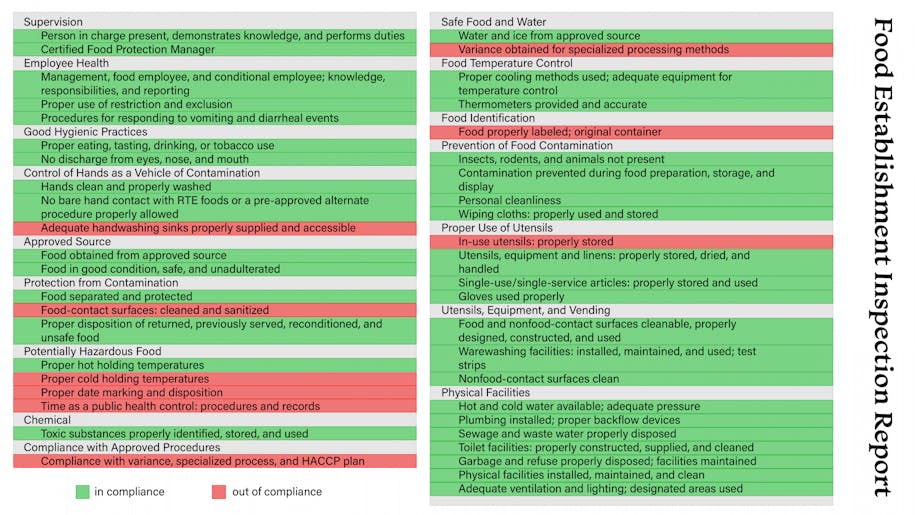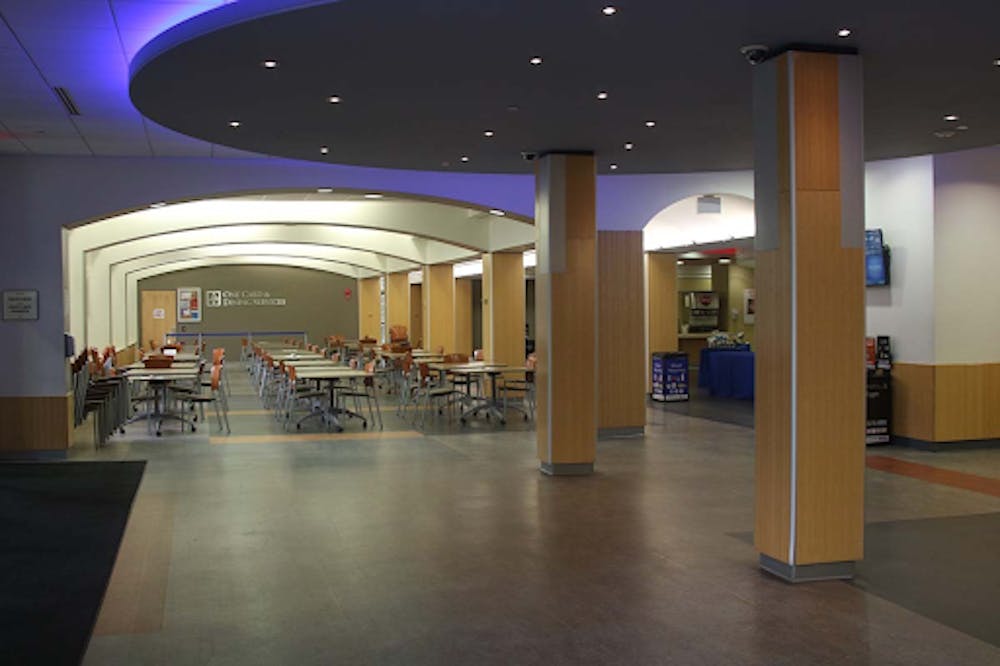A recent health inspection report obtained by The Eagle shows that the dining facilities in the Mary Graydon Center violated numerous health regulations.
The inspection was conducted on Sept. 21 after a complaint was made to the D.C. Department of Health.
The report concluded that dining facilities fall into risk category three, which stands for moderate risk, according to D.C. Health. When asked for information on the complaint that led to the inspection, D.C. Health did not provide specifics and directed The Eagle back to the inspection report.
“An inspector visited dining facilities at Mary Graydon Center on September 21st and identified areas of improvement to our services,” said Elizabeth Deal, assistant vice president for community and internal communications, in a statement to The Eagle. “The items noted included regular temperature checks for hot/cold food, proper labeling and surface cleaning. Upon receipt of the D.C. Health report, we took steps to address the identified issues and all have been resolved.”
The report described instances of unsanitary food-contact surfaces, including a meat slicer, a prep table with ready-to-eat food on it and a rusty can opener.
The inspector also observed that “mold is accumulating on the ice maker's plastic drip panel,” according to the report.
The report also found that food was not being kept at proper temperatures, specifically cold items in the open cooler display and reach-in coolers. In addition, the cold holding unit was unable to keep cold food items at and below 41 degrees. It was also found that temperature control was not being utilized for multiple food items, namely pizzas which had been displayed under heat lamps during the inspection.

Sushi rice was also improperly acidified without an approved hazard analysis and critical points plan, which is a written procedure created in order to identify, evaluate and mitigate potential food safety hazards. The University also did not obtain a variance for their acidification process, which is a document granted by the D.C. Health that allows a facility to modify or disregard one or more food code regulations if it will not pose a health hazard.
According to the report, all of these violations must be resolved within five days from when the inspection took place.
The report noted that utensils were being stored in still water. Multiple unlabeled plastic squeeze bottles filled with unknown liquids and unlabeled plastic food bins were also observed in the storage room and kitchen. These issues of noncompliance must be corrected within 14 days of the inspection, according to the report.
“American University is committed to the safety and satisfaction of all who visit our dining facilities,” Deal said. “In addition to addressing the areas noted by D.C. Health, we are requiring our dining staff to repeat several training modules. We regularly review our quality assurance procedures to ensure we meet and exceed health and safety standards and support our guests, associates, and the community. We will continue to monitor compliance with the DC Health recommendations.”
The report includes multiple compliance statuses that establish how each category was observed. Categories received “IN” for in compliance, “OUT” for not in compliance, “N/O” for not observed, “N/A” for not applicable, “COS” for corrected on-site and “R” for a repeat violation. MGC received “N/O” and “N/A” for multiple categories.





